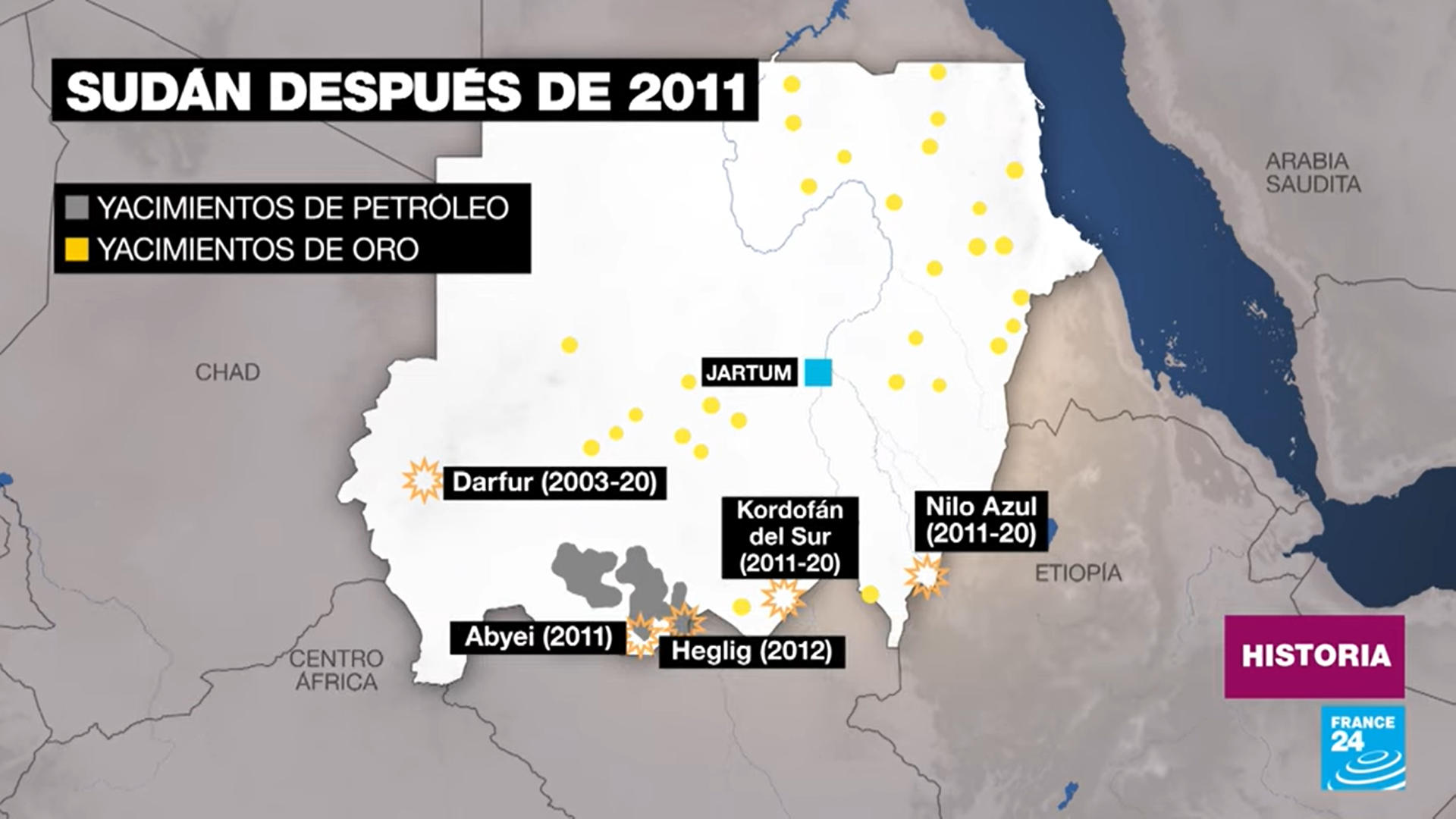First modification:
Sudan is a country whose normality has lived more with war than with peace. Since its independence in 1956, this nation has experienced two long civil wars between 1955 and 1972 and between 1983 and 2005, various internal inter-ethnic conflicts, the scourge of the dictatorships of Jaafar al-Numeiry first and Omas Al-Bashir later and now a conflict between the military that govern this state and a paramilitary group. Facts that millions of people have suffered in these decades and that at France 24 we want to make visible to give context to the current panorama.
The conflict unleashed in Sudan between the military government and the paramilitary group the Rapid Support Forces, also known as FAR, is only the latest episode of violence in a country whose normality for the last decades has been war and not peace. A context that has affected Sudan since its independence and has claimed the lives of millions of people in recent years for political, ethnic or religious reasons.
To get into context a bit, it is necessary to know that Sudan was established as a nation in 1956, after obtaining its independence from the United Kingdom and Egypt. But even before obtaining its freedom, this country was already at war, since between 1955 and 1972 the First Sudanese Civil War broke out. A conflict that, although it was put on hold for a year, went back to occur between 1983 and 2005 in what is known as the Second Sudanese Civil War.
To understand this situation, it must be taken into account that, after its independence, Sudan became the largest country in Africa and within its borders it had two contrasting realities. To the north there is a Muslim majority with a predominance of the Arab ethnic group that has always had power in Khartoum and to the south a Christian and animist majority with an amalgamation of sub-Saharan tribes and ethnic groups. Insurmountable differences that brought instability and conflict.

The First Sudanese Civil War alone caused half a million deaths in almost 17 years. This constant instability meant that any democratic attempt failed and favored that in 1969, after a coup, Colonel Jaffar al-Numeiry seized power.
The dictatorships of Numeiry and al-Bashir
Numeiry became Sudan’s first great dictator and ruled with an iron fist for nearly 20 years. His period brought some stability at the beginning, with peace after the first Civil War but, from 1983, the Second Civil War broke out and inter-ethnic conflicts added to a great famine in the west of the country that killed hundreds of thousands and that the military government concealed.
This context weakened the power of Numeiry and favored another soldier, named Omar al-Bashir, to seize power in Sudan in 1989. Al-Bashir focused his efforts on fighting the opposition forces in the south and imposing Arab and Islamic supremacy throughout the territory. Something that multiplied the conflicts in other regions such as Blue Nile or Kordofan and that made the Second Sudanese Civil War much worse than the first, reaching almost two million deaths in 22 years.
In addition, during his period in power, Sudan was included in the list of terrorist states by the United States, after demonstrating links between the dictatorship and Osama bin-Laden, something that meant years of international isolation.
To all this, we must add that parallel to the civil war, in 2003 an inter-ethnic conflict broke out in the western region Darfur that left at least 400,000 dead, according to the United Nations. An episode where Al-Bashir is accused of carrying out ethnic cleansing of non-Arab populations in the area and for which the International Criminal Court issued two arrest warrants against the dictator for genocide.
The independence of South Sudan, a turning point for Khartoum
Al-Bashir’s credibility improved after 2005 with the end of the Second Civil War and the guarantee to the south of the country of enjoying autonomy. A stability that lasted very little, since in 2011, a referendum was approved that gave independence to South Sudan and caused Sudan to lose a quarter of its territory and its largest hydrocarbon reserves.
Something that brought about a deep crisis and that, in the long run, caused al-Bashir to be deposed in a coup in 2019 and replaced by a two-year transitional government of a civic-military nature.
After the fall of Al-Bashir, the panorama of Sudan was this. A democratization process was opened and various internal conflicts in regions such as Darfur, South Kordofan and Blue Nile ended. However, the power of the military and paramilitary groups, such as the Rapid Support Forces, remained very strong,As well as his interest in getting rich and having control of the vast amount of natural resources in this nation.

Thus, after two years of transition, in Sudan there were no democratic elections and civilians were ousted from power in another military coup in October 2021.
In that coup, Abdel Fattah al-Burhan, leader of the Sudanese regular army, and Mohamed Hamdan Dagalo, nicknamed ‘Hemedti’, the strong man of the FAR, joined forces. However, that coalition had a clear expiration date due to the personal interests of each one.
It is here, when fearing the great power seized by the FAR, who have the support of other paramilitary groups, such as Wagner, the Sudanese military government decided to put an end to them and start the current conflict. An incipient civil war in which the population will once again be the main victim.











